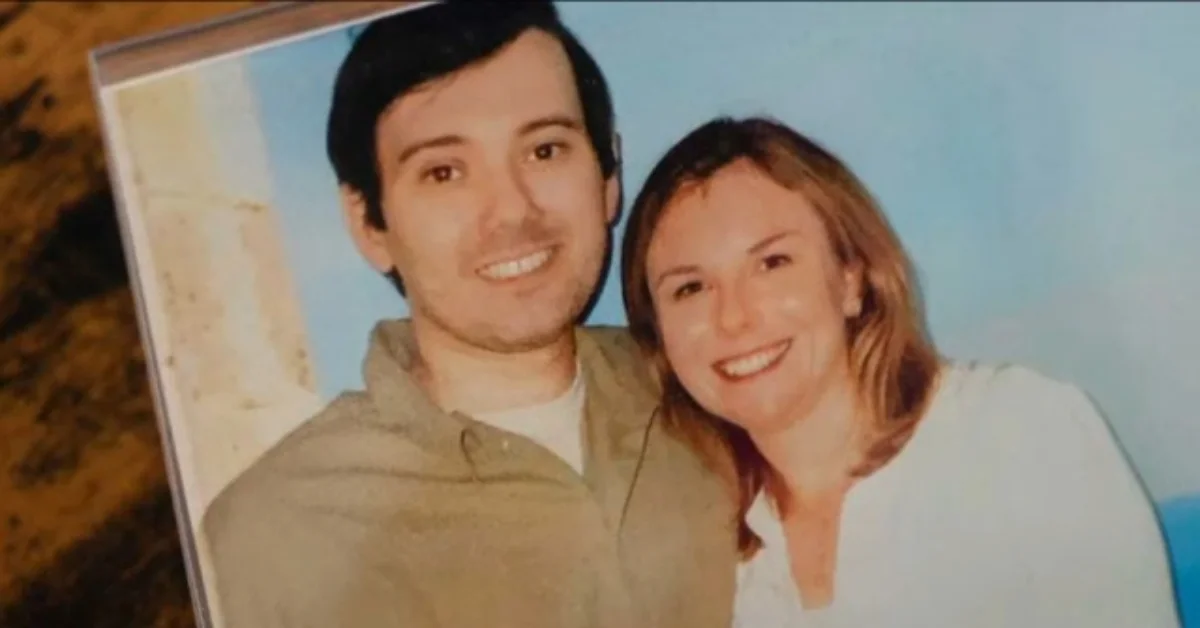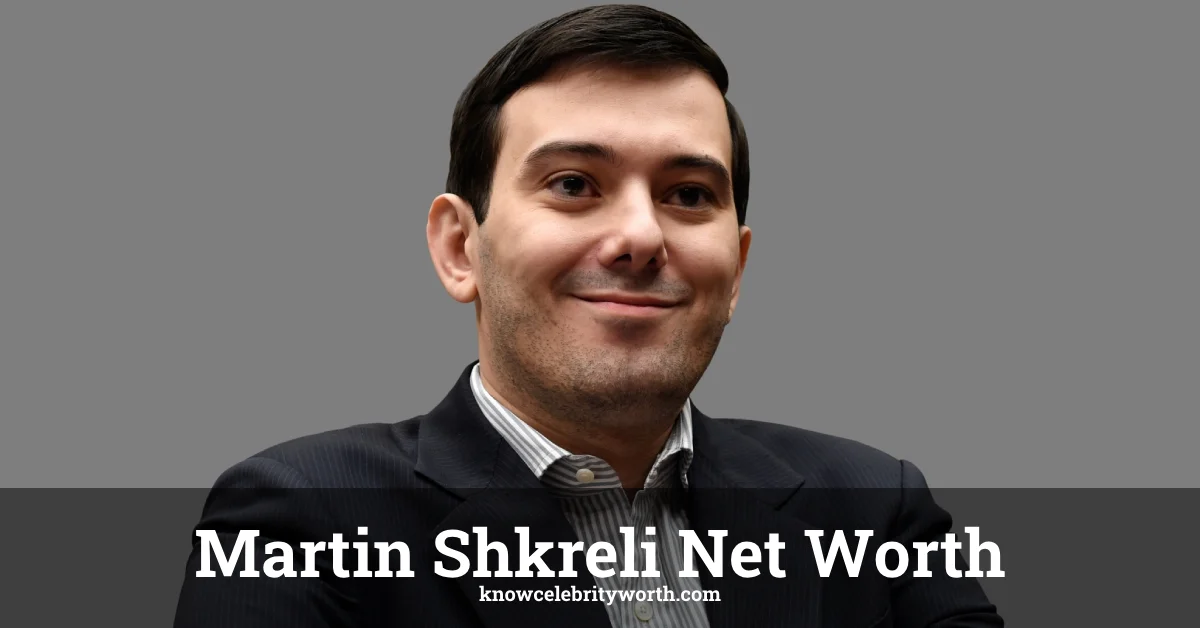Martin Shkreli became one of America’s most hated figures after raising a lifesaving drug’s price by 5,000% overnight. But what happened to his money after his dramatic fall from grace?
This article digs into the complex financial story of the man nicknamed “Pharma Bro” and explores how his wealth vanished following criminal convictions and massive fines.
Martin Shkreli Net Worth
Martin Shkreli’s net worth stands as a puzzle of contradictions. Some financial trackers list his wealth at $0, while others claim he still maintains assets worth approximately $26 million. This stark difference stems from how his wealth gets calculated—either counting his remaining assets or factoring in his substantial legal debts.
Before his legal troubles, Shkreli’s peak net worth reached an estimated $70 million in 2015. This fortune grew from his hedge fund management and pharmaceutical company ownership. His primary current asset appears to be shares in Travere Therapeutics (TVTX), formerly known as Retrophin, a company he founded. Financial reports suggest he owns approximately 1.76 million shares, valued around $26 million based on current market prices.
The complexity in his financial picture comes from the massive fines and forfeitures imposed on him. A federal judge ordered Shkreli to pay $64.6 million in profits he made from raising the price of the drug Daraprim. This fine, combined with other penalties, technically puts his net worth in the negative when accounting for all debts.
An insider source told reporters in 2023, “He lost almost everything through fines, legal fees, and asset seizures. What remains sits tied up in court battles and restricted holdings.”
His financial story mimics the extreme ups and downs of his public persona—skyrocketing success followed by a catastrophic crash.
The Legal Downfall
Shkreli’s wealth evaporated largely because of his criminal convictions and subsequent legal penalties. In 2017, a jury found him guilty on three counts of securities fraud related to his management of two hedge funds, MSMB Capital and MSMB Healthcare.
The court sentenced him to seven years in federal prison. He gained early release in May 2022 after serving about four and a half years. The judge cited Shkreli’s misleading of investors about his hedge funds’ performance as the basis for conviction. He claimed to investors his funds performed well while they actually lost money.
Beyond prison time, financial penalties crushed his fortune. The Federal Trade Commission and seven states sued Shkreli for his anticompetitive behavior with Daraprim. This resulted in the $64.6 million judgment against him in January 2022. The court also banned him for life from participating in the pharmaceutical industry.
The legal system seized many of his assets, including a rare Wu-Tang Clan album he purchased for $2 million. The U.S. government sold this unique album to help satisfy his debts. They also took his Picasso painting and his stake in Turing Pharmaceuticals.
His legal troubles caused more than just financial damage. The Securities and Exchange Commission barred him from serving as an officer or director of any public company. This effectively cut off his primary method of wealth generation through corporate leadership roles.
A Polarizing Figure

Born to Albanian immigrant parents in Brooklyn, New York, Martin Shkreli created his wealth through a combination of hedge fund management and pharmaceutical company acquisitions. He showed early promise in finance, landing an internship at Jim Cramer’s hedge fund at just 17 years old.
Shkreli founded MSMB Capital Management in 2009. Despite the fund’s actual poor performance, his reputation as a financial prodigy grew. He used this reputation to launch pharmaceutical ventures, founding Retrophin in 2011.
His most notorious moment came in 2015 as CEO of Turing Pharmaceuticals. The company bought the rights to Daraprim, a 62-year-old drug that treats parasitic infections in pregnant women, cancer patients, and HIV patients. Overnight, Turing raised the price from $13.50 per pill to $750—a 5,500% increase.
This move sparked national outrage. Shkreli defended the price hike, claiming the profits would fund research for better treatments. Critics argued the increase put the lifesaving drug out of reach for vulnerable patients.
His combative media appearances and seemingly unapologetic attitude earned him the nickname “Pharma Bro.” He appeared to relish the negative attention, often antagonizing critics on social media. For instance, when questioned about the price hike during a healthcare summit, he smirked and called a journalist “uninformed.”
His wealth peaked during this controversial period, with estimates placing his net worth around $70 million before his 2015 arrest.
Why Net Worth Figures Conflict?
The wide range of reported net worth figures for Shkreli comes from different calculation methods. Some financial trackers look strictly at his remaining assets, primarily his TVTX shares. This approach yields the $26 million figure.
Others factor in his legal obligations, including the $64.6 million FTC judgment. Since his liabilities exceed his assets when counted this way, these sources list his net worth at $0 or even negative.
A financial analyst explained, “On paper, he has valuable assets. In reality, he owes more than he owns. Court-ordered forfeitures and fines exceed his remaining assets.”
Adding to the confusion, Shkreli may hold cryptocurrencies or other assets not easily tracked by financial reporting systems. During a 2022 interview, he hinted at “alternative investments” but refused to elaborate on specifics.
The government actively monitors his financial activities as part of his supervised release. This creates limitations on how he can use or access any remaining wealth. Court records indicate he must disclose any transaction over $10,000 to authorities.
Disgraced Mogul
Shkreli’s financial downfall serves as a cautionary tale in corporate ethics and personal conduct. Once praised as a pharmaceutical wunderkind, his reputation now stands permanently damaged by his legal troubles and controversial business practices.
Media outlets continue to cover his post-prison activities with skepticism. In 2022, he announced the creation of a new drug discovery software company called “Druglike.” Securities regulators quickly clarified that his lifetime ban from the pharmaceutical industry extends to such ventures.
The Daraprim pricing scandal sparked national conversations about drug pricing regulations. Several states passed laws limiting dramatic price increases on generic medications directly in response to Shkreli’s actions.
His brash personality and defiant attitude during legal proceedings worked against him. The judge who banned him from the pharmaceutical industry called him “unrepentant.” His social media taunts, including offering $5,000 for a strand of Hillary Clinton’s hair during his trial, resulted in his bail being revoked.
Some investors who lost money through his hedge funds eventually received compensation through asset forfeitures. However, many report receiving just pennies on the dollar of their original investments.
Former business associates distance themselves from him. A former Retrophin board member said in a 2022 interview, “His actions caused real harm to patients who needed medication and investors who trusted him. The financial penalties represent accountability for those harms.”
Uncertain Financial Future
Shkreli faces significant challenges rebuilding his wealth. His securities fraud conviction makes him untouchable in the financial sector. His lifetime pharmaceutical industry ban blocks his return to the field where he made his fortune.
Legal experts suggest his financial obligations will follow him for decades. The $64.6 million judgment will accrue interest if unpaid, potentially growing larger over time.
His Travere Therapeutics shares remain his most significant known asset. However, as a convicted felon, he faces restrictions on how he can liquidate or transfer these holdings. The SEC closely monitors any transactions involving these shares.
Some speculate he might attempt to leverage his infamy through media appearances or entertainment ventures. However, his supervised release conditions limit his public activities.
Financial forensics expert Marcus Walden commented, “People with his history often discover that wealth recovery proves nearly impossible. The combination of legal restrictions, damaged reputation, and ongoing monitoring creates barriers too high for most to overcome.”
Despite these obstacles, Shkreli maintains his characteristic confidence. In a rare post-prison interview, he claimed: “I’ll be back on top within five years. America loves a comeback story.”
Conclusion
Martin Shkreli’s net worth journey tells a story of meteoric rise and catastrophic fall. From a peak of approximately $70 million to legal judgments exceeding his assets, his financial collapse parallels his public image transformation from biotech innovator to convicted fraudster.
The true figure of his current wealth remains unclear—somewhere between $0 and $26 million depending on how liabilities factor into calculations. What’s certain is that legal penalties and lifetime industry bans severely limit his ability to rebuild his fortune.
His story serves as a reminder of how quickly wealth can disappear when built on questionable business practices. The “Pharma Bro” who once flaunted his riches now stands as a case study in how the legal system can strip away ill-gotten gains.
For a man who once claimed “I like money more than people,” the irony of his financial downfall seems particularly fitting. The question remains whether Shkreli will find a way to rebuild his wealth—or if his most valuable remaining asset is simply his notorious place in corporate America’s hall of shame.
